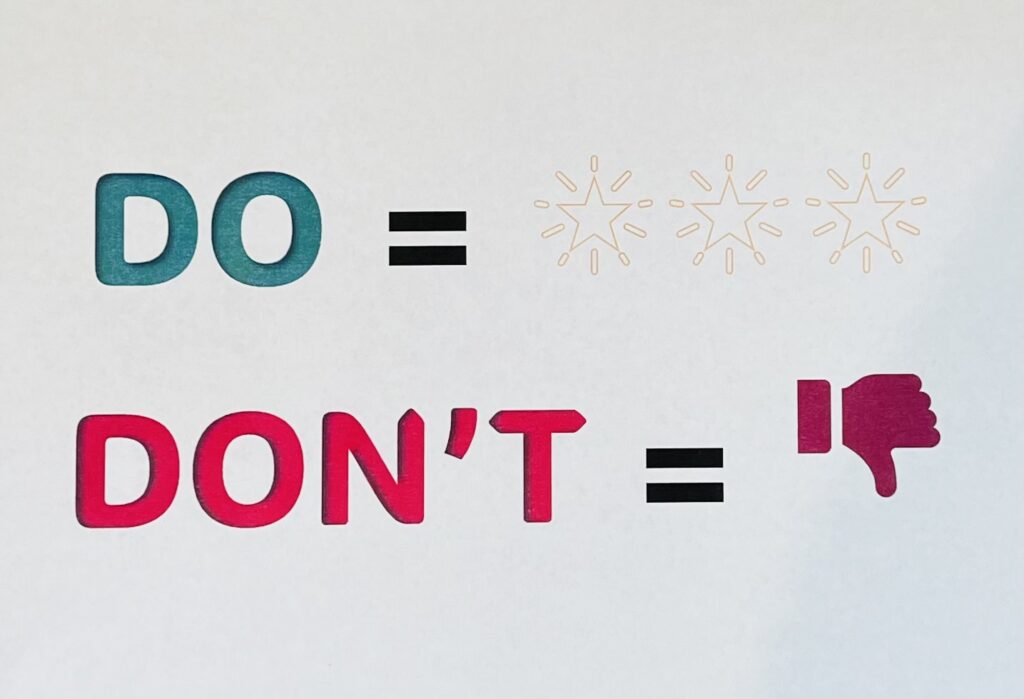Are you thinking about making a change in your employment? Before taking the plunge, here are a few pointers to consider:
Do – Be Prepared: Get your resume in order. Make sure that it is updated with the latest role that you are working in and include the details of the role. Tailor your resume to the specific job. You may need several versions. Ensure that the resume is in a format that is acceptable to the industry that you will be applying to work in. Make sure you are knowledgeable about everything that is on your resume and are prepared to speak about them. If needed, have available, among others, writing samples, references, portfolios, appropriate interview attire, a quiet and appropriate location for a zoom interview, transcripts, and licensing information.
Don’t Job Search While Using Your Current Employer’s Work Property: Do not use your work computer or work property for your job search. Do not send resumes from your work computer, your work phone, etc. Do not update, format, print and/or copy your resumes while at work. While it is understandable that the job search is difficult to do on your own time and using your own devices, your current employer can see what you are doing if you use their resources. Doing so may result in your being terminated prior to your being ready to depart from your employment, among other negative consequences.
Do -Make a List of Job Values: If you are going to be leaving your employment, you should know what it is you are seeking. Whether it be more money, flexibility, benefits, higher title and/or greater responsibility, travel, relocation, etc. making a list, in order of importance to rank your job priorities, may help you locate and land the role you are looking to find.
Don’t Take Proprietary Information: Regardless of whether you signed any documents limiting your future employability, you are not entitled to take with you any of your current employer’s trade secrets or proprietary information. Doing so may result in a lawsuit against you and if used, then a lawsuit against your new employer. Many companies monitor employees’ keystrokes, emails, print history and can see what items have been accessed in the company files and whether these are appropriate items. Additionally, while employed and/or upon departure many employers require employees to return, destroy and/or delete all company files and communications that the employee may have in their possession from work done outside of the office.
Do -Know if you Have Any Limitations: At the onset of employment and while employed, many employees are required to sign documents that may limit their ability to work or perform certain services for their next employer. Examples of these documents include, without limitation, non-compete agreements, non-solicitation agreements, confidentiality agreements, workplace invention agreements and/or may be found in certain stock agreements. Knowing your limitations and being able to share these with any prospective employer, may prevent unnecessary lawsuits and/or termination.
Don’t Resign Without Having a New Job: While there are many reasons that employees may want to leave their employment, generally, it is best not to resign from your employment until you have secured new employment. This does not mean that employees should resign during the interview process. Rather, it means after you have accepted employment and all background contingencies have been met. Many employers believe employees are more valuable if they are presently working. While this is not always possible, and in the current employment landscape, there are numerous layoffs (which are easily explainable), if you are able to control the timing of your departure, make sure that everything is finalized before you tender your resignation. It may seem easier to find new employment if you resign, but that is not always in your best interest. Of course, there are different situations in which resigning may be the best course of action for you (i.e. bullying bosses, discrimination, retaliation, toxic work environments) and in which you have no choice but to resign without a new job, but the general consensus is that, when possible, it is better to be employed when seeking new employment so that there is no unnecessary gap on your resume that has to be explained away.
Do– Know What You May be Entitled to Upon Your Departure: When you resign from your employment, the timing may be important. In certain situations, it is best not to resign (and even give notice of your intention to resign) until after you have received your bonus or stock has vested. There is consideration to be given as to whether you will be paid PTO or vacation time or if this should be used first. Also, if you are receiving benefits, the timing may mean another month of paid benefits versus termination of benefits on the date of resignation. The Company’s policies on each of these should be reviewed before notice of resignation is given.
Don’t Consider a Counteroffer: Counteroffers are generally not beneficial. People get nervous about departing and Company’s may be in a bind, so a counteroffer is tendered. However, remember there was a reason you wanted to leave and now the Company knows that you are unhappy. For more information on why you shouldn’t accept a counteroffer, click here.
Do Get Advice and Create a Plan: If you are considering a job transition, you may want to speak with a coach or a lawyer to help you on your journey. Aside from the above, there are questions like: Should you receive severance? Do you have any possible claims against the Company? Will there be an exit interview for you to attend? For guidance, job coaching or counseling, assistance with your transition or just more information contact Sheree Donath.
(Attorney Advertising)



